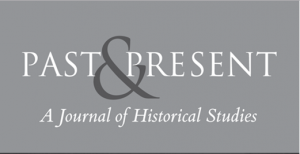Received from Dr. Nathasja Roggo-van Luijn (Johannes Gutenberg- Universität Mainz)
Epistemology of Ancient Embryology Conference
Dates: 1st – 3rd July 2024
Location: Department of Classics, University of Cambridge/and online
Overview
This conference will explore the various epistemological practices and strategies used in ancient Graeco-Roman embryology. An embryo can turn into a fully-fledged human being, but it is unclear how exactly that happens, as the inner workings of a pregnant female body cannot directly be observed. What methods did ancient thinkers use to circumvent this problem and nevertheless say something about the formation of embryos? What strategies did they employ to come up with theories, corroborate general principles, adapt theories from predecessors, and communicate their own theories to their audiences?
Strategies which were employed include dissection, vivisection, empirical observation of the pregnant female body, studying miscarriages, talking to women and midwives, comparisons with artefacts or plants, inferences from the pregnancy of animals, and connecting it to cosmological views by principle of ‘microcosm-macrocosm’. The conference will focus on the Graeco-Roman world, inviting experts on a range of thinkers (the ‘Presocratics’, the Hippocratic Corpus, Aristotle, Hellenistic doctors, the Stoics, Galen, Middle- and Neoplatonism), but will also include a comparative panel on embryology in other ancient cultures, e.g., China, Babylonia, India, and Egypt. Bringing together experts on the use of a range of methods, thinkers, and traditions, this conference aims to give a coherent account of the various, and often overlapping, epistemological strategies and practices employed in ancient embryology.
Programme
Monday July 1st:
8.45-9.15 Coffee
9.15 Introduction
Session (1). Chair: Sophia Connell
9.30-10.30: Caterina Pello
‘From Parmenides to Democritus: Presocratic Embryological Arguments’
10.30-11.30: Nathasja Roggo-van Luijn
‘From Cucumbers to Wool: Analogies in Ancient Greek Embryology’
11.30 Break
Session (2). Chair: Nathasja Roggo-van Luijn
11.45-12.45: Cathie Speiser [online]
‘The Embryo in Ancient Egypt’
12.45-2.00 Lunch
Session (3). Chair: Chiara Blanco
2.00-3.00: George Kazantzidis [online]
‘Terpsis and Akribeia in Hippocratic Embryology: The story of the seven-day foetus’
3:00-4:00: George Karamanolis [online]
‘Early Christians on the Soul of the Embryo’
4.00-4.30 Break
Session (4). Chair: Lea Cantor
4.30-5.30: Lisa Raphals
‘On the Character of an Unborn Child: Three Excavated Texts on Embryology’
Tuesday July 2:
Session (5) Chair: Nathasja Roggo-van Luijn
9.30-10.30: Vishyna Knezevic
‘Philolaus’s Embryology’
10.30 break
Session (6) Chair: Chiara Martini
10.45-11.45: Aistė Čelkytė
‘The Neopythagoreans and the Mathematics of the Embryo’
11.45-12.45: Alesia Preite
‘The Embodiment of the Immortal Soul in the Timaeus: An Embryological Interpretation of Ti. 42e5-44c4’
12.45-2 Lunch
Session (7) Chair: Myrto Hatzimichali
2.00-3.00: Sophia Connell
‘The Use of Empirical Claims in Galen’s Embryology’
3.00-4.00: Anne Behnke Kinney [online]
‘Embryology in Ancient China’
4.00 Break
Session (8) Chair: Sophia Connell
4.30: Mariska Leunissen [online]
‘Old Wives’ Tales, Maternal Expertise, and Early Medicine in Aristotle’s
Embryology’
7.00 Conference Dinner
Wednesday July 3:
Session (9). Chair: James Warren
9.30-10.30: Chiara Blanco
‘Greek Medical and Biological Influences on Lucretius’ Embryology’
10.30 Break
11.00-12.00: Norah Woodcock
‘Eggs as External Wombs in Aristotle’s Theory of Generation’
Registration
In addition to the Past & Present Society this event is supported by the British Society for the History of Philosophy, the Mind Association, Birkbeck University of London, and the Faculty of Classics at the University of Cambridge.
Past & Present is pleased to support this event and supports other events like it. Applications for event funding are welcomed from scholars working in the field of historical studies at all stages in their careers.

